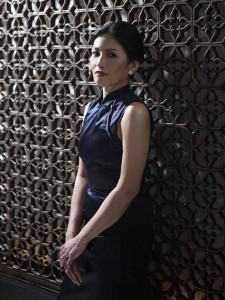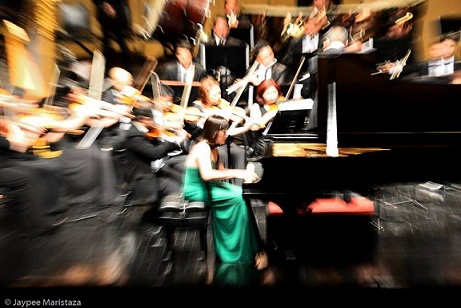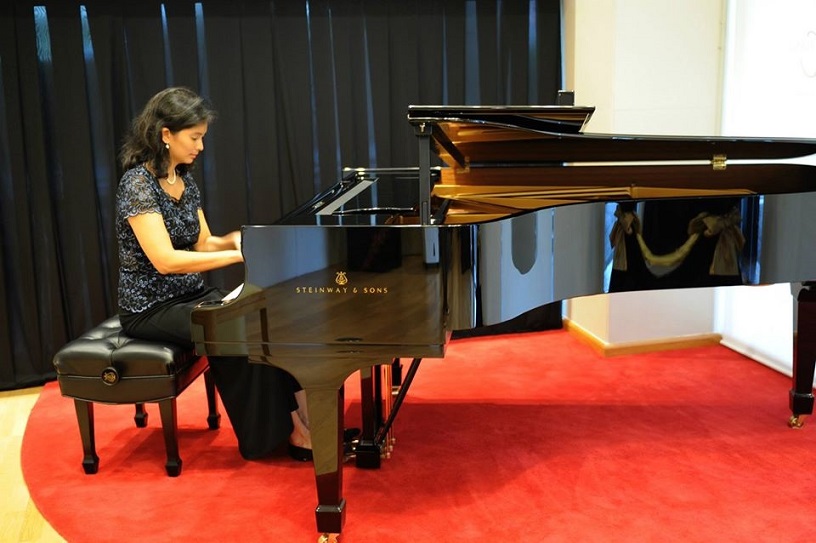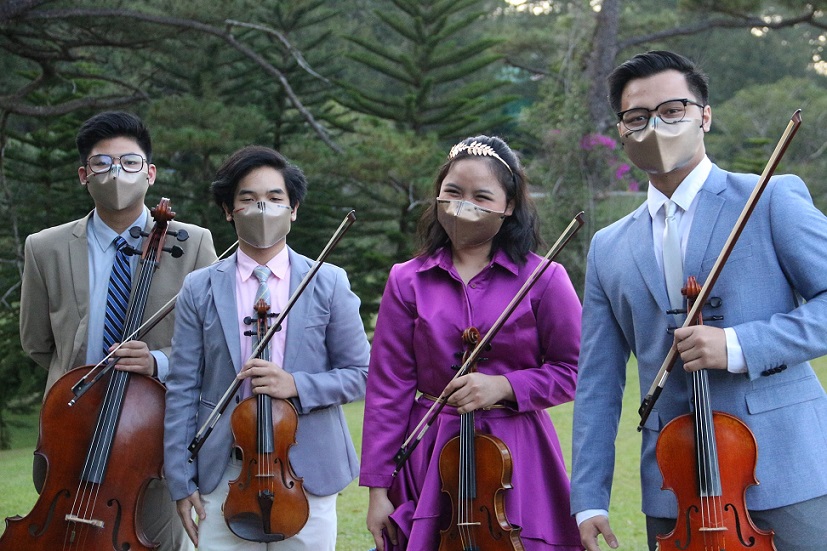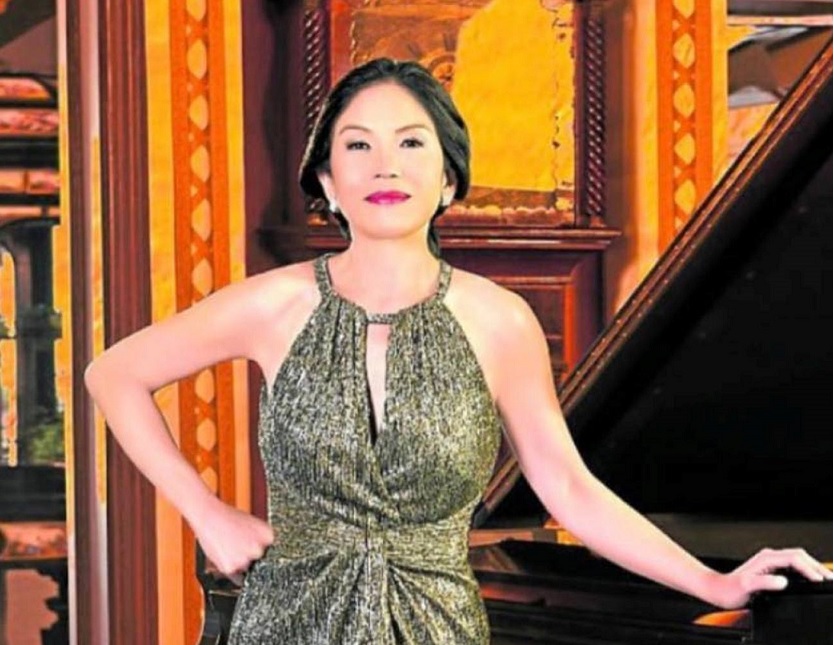BY PABLO A. TARIMAN
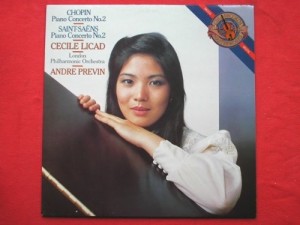 CECILE Licad, the Philippines’s most celebrated pianist, is again circling the USA commuting between Liszt and Chopin in a series of recitals and orchestral engagements that had critics swooning. once again.
CECILE Licad, the Philippines’s most celebrated pianist, is again circling the USA commuting between Liszt and Chopin in a series of recitals and orchestral engagements that had critics swooning. once again.
A California music critic singled out her Liszt number thus: “In the loud pieces — the opening “Chapelle de Guillaume Tell” and especially “Orage” (meaning “storm”) — Licad rampaged over the keyboard, delivering huge expressive sweeps with rushing waves of emphasis, increasing fury into devilish anarchy. Rumbling noises the likes of which are rarely heard came out of the piano. Rhythms were freely flexible, moving beats back and forth. This, I thought, must have been what it was like to hear Liszt himself play, making audiences swoon.”
This month, she will play Chopin Piano Concerto No. 2 in F Minor in Seattle on November 9,10 and will head for Boston November 25 for a recital that includes Chopin’s Sonata No. 2.
Chopin is now 202 years old and it is amazing how the half-a-century old Licad connected with the Polish composer’s music as though she had known him all her life.
Understandably, the Northwest Sinfonietta of Seattle made much of the fact that her recording of the F Minor Chopin concerto with André Previn and the London Philharmonic won the Grand Prix du Disque from Warsaw’s Chopin Society.
For the record, Licad was the first recipient of this CD citation from Poland’s Chopin specialists.
A second look at Licad’s phenomenal career shows that she had an excellent command and feel for Chopin as early as when she was 11 years old.
Licad’s first competition piece was the Chopin’s F Minor concerto which won for her the Manila Young Artists auditions when she was barely in her teens. She nearly didn’t make it in that competition because one member of the jury thought that the Chopin concerto was not suited for an 11-year old pianist.
The same Chopin concerto was Licad’s debut with the New York Philharmonic under Zubin Mehta in 1981. Like Picazo and Tupaz, Licad’s teacher, Rudolf Serkin, also chose the Chopin concerto for her debut piece with the New York Philharmonic. By coincidence, Licad played the first movement of this concerto as her audition tape for Curtis and she was accepted without reservation.
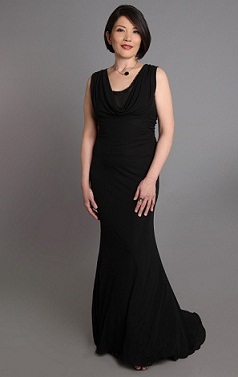 The Chopin debut with the New York Philharmonic at the Avery Fisher Hall was one of Licad’s triumphant nights and it was greeted with a standing ovation.
The Chopin debut with the New York Philharmonic at the Avery Fisher Hall was one of Licad’s triumphant nights and it was greeted with a standing ovation.
In the audience that night was Mrs. Licad’s cousin, Ricardo Guevara with wife, Amelita and Irene Marcos Araneta escorted by Van Cliburn.
In her first recital in Poland, Licad used a Paderewski (noted Polish pianist and statesman) piano after which the critics hailed her as one of the “best Chopin interpreters in 15 years.”
She was also invited to sit in the jury of the Chopin competition but her manager unknowingly accepted a Hong Kong engagement which coincided with the competition proper.
On her second visit to Cebu in 1994, Licad played Chopin’s Sonata No. 2 for her finale number. For several seconds after the last notes had ended, the audience remained unmoving. The audience so absorbed the piece they thought it would break the trance if they applauded.
The Chopin B Flat Minor Sonata is also referred to as the Funeral March because of the third movement which is referred to as the most celebrated elegy in instrumental music
Later, playing the same Funeral sonata at the CCP, well-wishers overheard Mrs. Marcos telling Licad, “After that Chopin sonata, I am not afraid to die anymore. Cecile, you are a sorcerer of an interpreter.”
It is understandable that Licad connected with her best friend, filmmaker Marilou Diaz Abaya in this movement which is about sorrow giving way to torment.
Among those who raved over Licad’s B Flat Sonata was the late National Artist for Architecture Leandro V. Locsin who passed away two months after that 1994 recital.
The Polish poet-critic complained that it was hard to get Licad’s all-Chopin recording in France where he found one through the internet.
He wrote to Licad,“Your Chopin is absolutely marvelous; it’s like listening to Him resuscitated! You should record as much as possible of his works! Please, you must do it for humanity! It’s so terribly rare to hear such an interpretation, absolutely adequate to the message of the music.”
When Licad first played Chopin’s Twelve Etudes Op. 25 in Washington D.C. some years back, the Washington Post critic noted that throughout the evening, Licad’s “fierce intelligence illuminated the emotional core of Chopin.”
But nothing beats the erudite words of Philadelphia Inquirer critic Daniel Webster in his review of one Licad recital: “We hear a different Chopin from what our elders heard. The music is more direct, edgy, and muscular. The poetry is there, but the urgency of it is even more clear-eyed, more intense. The subtle differences have emerged as all the elements of life have changed around the music. Cecile Licad made that point in her recital Friday at the Philosophical Society. The pianist exemplifies the style. Her focus is the instrument. She skirted excessive freedoms in the Scherzo No. 1, and rattled some thunder in its landscape. Her playing carries the weight of authority and the absence of doubt.”
For Licad, there is really no secret to her Chopin touch.
“I learn the score very well, not just my part but everybody’s. Being with a chamber orchestra, you don’t just think about your music. But when I perform, I stop thinking and analyzing and play what I feel instinctively. I never plan anything–the phrasing is here, a harmonic chord is there. I think of it at the moment.”
